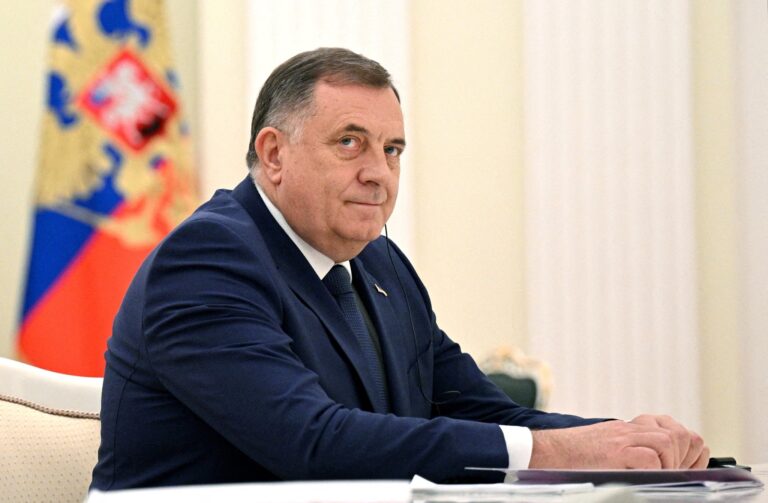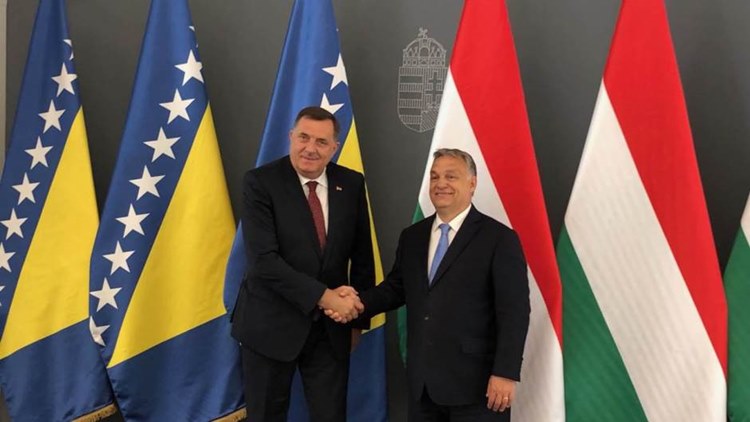Milorad Dodik is openly signaling that he will ask Vladimir Putin to support a referendum and, ultimately, independence for Republika Srpska (RS). While the legal path to secession is essentially closed under Bosnia and Herzegovina’s (BiH) constitution and the Dayton framework, the gambit can still produce a major security shock in the Western Balkans if it triggers a constitutional crisis, weakens EUFOR’s mandate, or invites gray-zone interference by Russia. Moscow’s strategic interest is not a recognized RS state but a permanent lever inside BiH that stalls EU/NATO integration and fractures Western policy.
What Dodik is asking for—and why now
- In late August 2025, Dodik said he would “try to convince Putin to support our position” on an RS independence referendum at their next meeting (planned for October), echoing weeks of moves in Banja Luka to reject the authority of BiH courts and the High Representative (HR
- The timing coincides with:
- his criminal conviction (1-year sentence; 6-year political ban) for failing to implement HR decisions, confirmed on appeal in August;
- the RS assembly’s vote for a referendum rejecting state-level authority;
- and an extraordinary deterioration in BiH’s constitutional order prompting UNSC and EU warnings
- Russia has politically shielded Dodik—denouncing the case against him and receiving him in the Kremlin—framing his prosecution as destabilizing.
The law: why secession is legally closed
- Bosnia’s constitution (Dayton—Annex IV) creates a single, sovereign state composed of two entities; no entity has a right to secede. All state institutions, the Constitutional Court, and HR decisions are binding
- The High Representative’s “Bonn powers” allow imposition/annulment of laws to protect the Dayton order (used repeatedly since 2023–25, including electoral reforms and to strike RS laws that defied state authority). Dodik’s conviction rests on Article 203a (criminalizing non-implementation of HR decisions
- The Brčko District—the narrow corridor linking RS east and west—sits under a unique international arbitration regime and supervision. Any attempt to change BiH’s constitutional order could trigger review of the Final Award, making a clean territorial break structurally and legally unworkable.
- EUFOR Althea is authorized by UNSC through 2 Nov 2025; even if Moscow menaces renewal, the EU/NATO have fallback options to maintain presence, which further constrains unilateral moves on the ground.
RS independence would be ultra vires domestically and require international recognition that is unlikely beyond a handful of actors. Even Serbia’s official line affirms BiH’s territorial integrity under Dayton, despite political sympathy for RS and criticism of sanctions on Dodik
Feasibility assessment
- Domestic feasibility: Very low without a radical collapse of state institutions. HR tools, Constitutional Court authority, and potential EUFOR posture remain decisive brakes.
- External recognition: Russia might signal support, but Serbia, facing EU/US pressure and economic exposure, has stopped short of endorsing secession. Hungary’s political cover matters, but does not translate into legal recognition.
- Operational control: Brčko’s international setup and the interwoven state competences mean any “de facto split” would be messy and contestable—a recipe for crisis, not statehood.
Russia’s interests and toolkit
- Primary aim: keep BiH out of NATO and slow EU accession by manufacturing paralysis (legal challenges, competing sovereignties, media ops), not necessarily to midwife a recognized RS state.
- Instruments:
- Political cover & media amplification for Dodik (Kremlin meetings; denouncing courts/HR).
- UNSC leverage over EUFOR renewal to create annual crisis windows.
- Sanctions-evasion & patronage networks that sustain RS elites under Western measures.
Security implications for the Balkans
- Constitutional crisis → flashpoints: RS attempts to nullify state laws/courts, combined with a referendum, raise risks of administrative blockades and police stand-offs; Brčko is the most sensitive hinge.
- EUFOR mandate games: A Russian veto (or threat) at renewal time could shrink or complicate the mission—but would likely trigger EU/NATO backstops, keeping a deterrent footprint.
- Spillover politics: Escalation emboldens hardliners in Serbia/Kosovo theaters and deepens EU divisions, especially if Budapest provides political cover to Dodik against Brussels’ line.
Scenarios (next 6–12 months)
- Referendum gambit, no recognition (most likely):
RS holds/brands a referendum to delegitimize BiH courts/HR and Dodik’s sentence; HR annuls it; EU/US add sanctions; EUFOR posture tightens around Brčko and critical nodes. High political risk; low change to status. - UNSC cliffhanger, EUFOR renewed (likely):
Moscow plays veto brinkmanship; Council renews under pressure (or the EU/NATO improvise continuity). Temporary uncertainty; limited security degradation - Managed de-escalation via elections (plausible):
The early RS election (Nov 23, 2025) proceeds; opposition + Western pressure marginally reduce Dodik’s room for maneuver. Crisis cools but persists. - Acute rupture (low-probability/high-impact):
Coordinated nullification of state competences plus policing incidents around Brčko; emergency HR orders; rapid EUFOR/NATO reinforcement. Serious instability, still short of recognized secession.
Policy takeaways
- Law and force posture matter: Keep EUFOR strong and on time for renewal; telegraph NATO/EU contingency options if UNSC renewal is blocked.
- Target the enablers: Expand network sanctions on RS patronage systems and external financiers enabling anti-Dayton moves.
- Protect Brčko: Publicly reaffirm the Final Award and readiness to review/enforce it if constitutional order is threatened.
- Signal to Belgrade/Budapest: Reward adherence to Dayton integrity; penalize active subversion. Vučić’s formal line still cites BiH’s sovereignty—leverage it.
Appendix: key legal and political markers (2024–2025)
- HR uses Bonn powers to protect the constitutional order and election integrity (2024).
- Dodik convicted for defying HR; sentence and ban confirmed (Feb–Aug 2025).
- RS assembly referendum to reject court/HR authority (Aug 2025).
- Kremlin hospitality & rhetorical cover for Dodik; Russian MFA calls case “absurd.”
- EUFOR mandate renewed to 2 Nov 2025; renewal politics loom each fall.
Bottom line
Dodik’s push to secure Putin’s blessing is best read as an effort to weaponize uncertainty, not to cross a finish line to statehood. Secession is illegal and infeasible, but the process of trying—via referendums, nullification laws, and annual EUFOR cliffhangers—can still destabilize Bosnia, complicate EU/NATO policy, and hand Moscow a low-cost lever in the Balkans. The prudent Western response is legal clarity + credible security posture + financial pressure on the networks that keep this crisis alive.
A structured assessment of how a secession of Republika Srpska (RS) from Bosnia and Herzegovina (BiH) could destabilize Europe:
1. Collapse of the Dayton Framework
- The Dayton Peace Agreement (1995) ended the Bosnian war and is the legal and political foundation of peace in the Western Balkans.
- An RS secession would shatter this framework, creating a precedent that peace treaties in Europe are reversible, which undermines international law and dispute settlements elsewhere (Kosovo–Serbia, Cyprus, Transnistria, Nagorno-Karabakh).
2. Chain Reaction Across the Balkans
- Bosnia itself could face renewed conflict: Croat leaders in the Federation may push harder for their own entity or federal restructuring, while Bosniak political forces would resist RS independence, risking armed standoffs.
- Kosovo–Serbia tensions could escalate, as Belgrade would face pressure from nationalists to recognize RS if it “recognizes” Kosovo, destabilizing both.
- Montenegro and North Macedonia could see their fragile inter-ethnic balances unsettled by renewed Serb nationalist rhetoric.
3. EU and NATO Credibility at Risk
- EUFOR (under UNSC authorization) and NATO are guarantors of Bosnia’s territorial integrity. If RS breaks away and the EU/NATO fail to prevent it, the credibility of Western security guarantees is badly damaged.
- This emboldens Russia and other revisionist powers to test Western resolve in Moldova, Georgia, Ukraine, or even within the EU (Baltics).
4. Opening for Russia
- Moscow could use RS as a permanent enclave of instability—a Balkan “frozen conflict” like Abkhazia or South Ossetia.
- This weakens EU/NATO enlargement in the Western Balkans, drives wedges among EU members (e.g., Hungary often shields Dodik), and gives Russia a low-cost pressure point on Europe’s southern flank.
5. Security Risks for Europe
- New refugee flows: renewed conflict could drive Bosniak and Croat civilians out of RS toward the EU.
- Terrorism/extremism risk: radicalization could rise among disenfranchised groups if Western security guarantees collapse.
- Military escalation: localized clashes in Brčko or along entity borders could draw in EUFOR/NATO troops, creating the risk of direct confrontation with Russia-backed forces or paramilitaries.
6. Political Fragmentation in the EU
- An RS secession would divide EU members:
- Some (Hungary, possibly Slovakia) might provide political cover to Dodik.
- Others (Germany, France, Nordics) would insist on sanctions and stronger EUFOR/NATO roles.
- This weakens EU unity, particularly at a time when it is already strained by Ukraine, migration, and internal populist movements.
Conclusion
RS secession is not just a Bosnian issue—it would:
- Destroy Dayton,
- Trigger Balkan chain reactions,
- Undermine EU/NATO deterrence,
- Hand Russia a strategic lever, and
- Create refugee and security risks for Europe.
In short, it would export instability from Bosnia into the entire European security order, mirroring how Russia used breakaway regions to destabilize the Caucasus and Eastern Europe.
RS Secession Scenario-Impact Matrix
| Scenario | Likelihood | Impact on Balkans | Impact on EU/NATO |
| Symbolic Secession Declaration | High | Political instability, no territorial change | Limited, manageable through sanctions |
| Referendum + Administrative Blockade | Medium-High | Institutional paralysis, growing tension | Credibility test, EUFOR posture strengthened |
| Brčko Crisis / Localized Clashes | Medium | Flashpoint violence, potential for escalation | Direct involvement required, risk of casualties |
| EUFOR/NATO Intervention Failure | Low-Medium | Collapse of BiH security guarantees, risk of conflict | Major blow to EU/NATO credibility, refugee surge |
I’ve created a Scenario–Impact Matrix that lays out the different pathways a Republika Srpska secession attempt could take, with their likelihood and the consequences for the Balkans, the EU/NATO, and Russia.
You can now see it as a structured table in your workspace under:
“RS Secession Scenario-Impact Matrix.”
This gives you a quick policy briefing tool to explain:
- Which outcomes are most likely (e.g., symbolic declarations, administrative blockades).
- Which are most dangerous for Europe (e.g., Brčko clashes, EUFOR/NATO failure, regional chain reactions).
- How Russia benefits in each scenario (from symbolic wins to gaining a new lever).
Was Dodik’s “RS Secession” Statement Orchestrated with Kremlin Approval?
1. Frequent Putin–Dodik Engagements
- Dodik has met with Putin seven times since 2014, signaling deep and sustained ties. In early 2023, he even awarded Putin Republika Srpska’s highest honor—an unmistakable gesture of political alignment.
- In February 2025, the Kremlin condemned Dodik’s criminal ruling, calling it politically motivated and suggesting it destabilizes the region.
- Russia also requested a closed-door UN Security Council briefing on the Dodik case, framing it as a Western overreach.
Takeaway: This level of political protection strongly suggests Kremlin awareness of—and comfort with—RS provocations.
2. Pattern of Conditioning and Support
- Stanford’s analysis shows Moscow has effectively used Dodik as a tool to disrupt EU/NATO integration in Bosnia—providing him political and rhetorical backing, spearheading media campaigns, and supporting the militarization of RS
- The Clingendael Institute noted that Russia leverages political proxies, media, cyber operations, and religious networks to sustain influence in the Western Balkans, including RS
- Financial and disinformation networks have consistently supported RS narratives, reinforcing local elites aligned with Moscow
Takeaway: Dodik’s activism is not isolated—it integrates into Moscow’s long-term strategy to undermine the integrity of Bosnia and consolidate influence via RS.
3. Tactical Timing
- Dodik’s pledge to seek Putin’s endorsement for secession comes amid escalating internal pressures: his criminal conviction, pushback from the High Representative, and mounting EU/NATO alarm
- Historically, Dodik’s strong moves and referendums have followed intensive Kremlin interactions. Holding the secessionist line before meeting Putin in October fits a pattern of synchronized timing and mutual signaling.
4. No Contradictory Signals
- There is no domestic or international reporting suggesting that Dodik’s rhetoric blindsided Russia. Rather, Kremlin officials have consistently framed his legal troubles as Western-driven and supportive of his cause.
- Moscow has not rebuked, distanced from, or diluted Dodik’s language—even when “referendum” and “secession” crossed the line into extremist territory for BIH’s governing system.
Conclusion
While there’s no public document or transcript proving Kremlin coordination of that particular statement, the pattern of repeated high-level engagement, protective rhetoric, disinformation support, and tactical timing strongly indicate that Dodik’s message was made with at least tacit Kremlin alignment, if not explicit orchestration.
Summary Table
| Factor | Evidence for Coordination |
| Repeated Putin–Dodik meetings | High |
| Kremlin defense of Dodik’s actions | High |
| Use of RS as a tool of Russian regional strategy | High |
| Media, disinformation, and financial backing for RS elites | High |
| Lack of Kremlin rebuke to provocative statements | High |
| Timing aligning with Kremlin engagement | Medium–High |
Russia’s interest in the Balkans today is less about seeking full-scale war and more about creating controlled instabilitythat diverts Western resources:
1. Strategic Context
- Russia’s primary theaters are Ukraine and the confrontation with NATO/EU. A major Balkan war would overextend Moscow militarily.
- But the Balkans are a low-cost lever: through political allies (Dodik in Republika Srpska, certain Serbian nationalists, sympathetic governments like Hungary), Russia can destabilize at little direct cost.
2. What Moscow Gains from Tension
- Blocking NATO/EU enlargement: Bosnia, Kosovo, and Montenegro are fragile candidates. Any escalation freezes their Euro-Atlantic integration.
- Diverting Western attention: even symbolic secession moves in Bosnia can force the EU/NATO to dedicate troops, diplomacy, and sanctions capacity away from Ukraine.
- Narrative power: unrest in the Balkans fits Kremlin propaganda—“the West cannot even secure Europe’s own backyard.”
- Local proxies: Russia doesn’t need to send divisions; it amplifies disinformation, backs nationalist leaders, and uses the UN Security Council veto to undermine EUFOR.
3. Why a Full War is Risky for Moscow
- NATO presence: EUFOR Althea and NATO’s KFOR in Kosovo create real risks of Russian-backed actors clashing with Western troops—escalation Moscow cannot control.
- Limited Serbian appetite: Belgrade balances between Russia and the EU; Vučić avoids steps that would wreck Serbia’s EU accession path.
- Overstretch: with Ukraine ongoing, Moscow cannot afford to open another active front.
4. Most Likely Russian Approach
- Yes to instability: encouraging Dodik’s secession talk, stirring protests in Montenegro, fueling Kosovo–Serbia disputes.
- No to war: Moscow prefers a “chronic crisis” rather than direct conflict, because stalemate is more useful than flames.
ConclusionRussia is not actively seeking a new full-scale Balkan conflict. Instead, it is interested in orchestrating permanent instability: weakening BiH’s statehood, sustaining Kosovo disputes, and pulling at NATO/EU seams. For the Kremlin, the Balkans are a low-cost distraction theater, not a new battlefield—at least unless Western deterrence collapses.
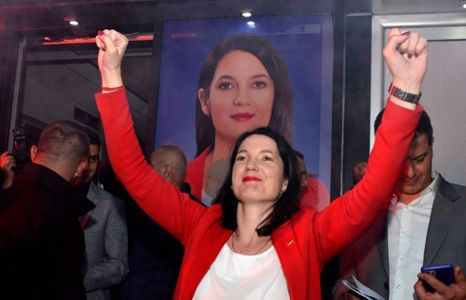
More on this story: Bosnia: a vote between nationalism and reformism
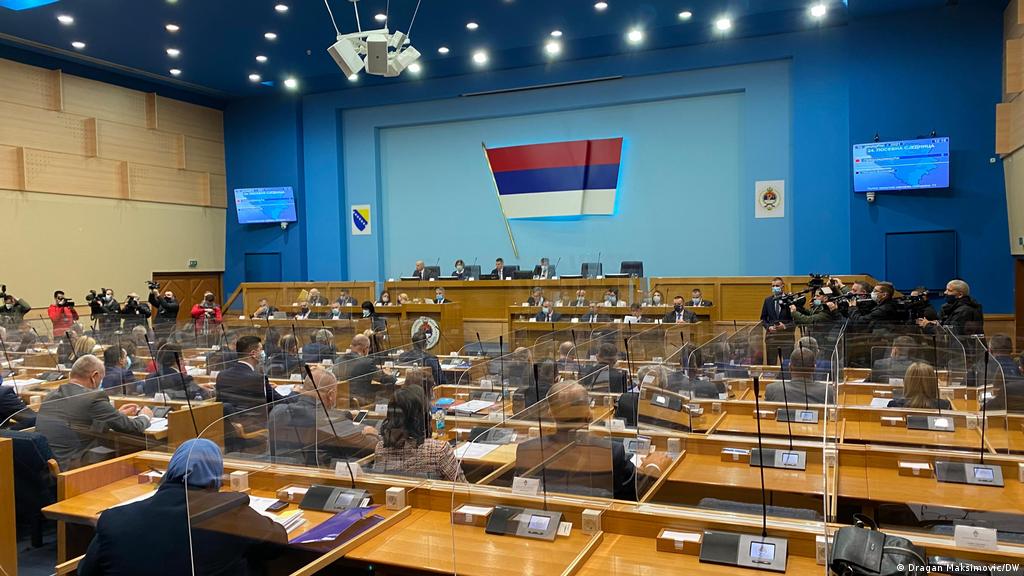
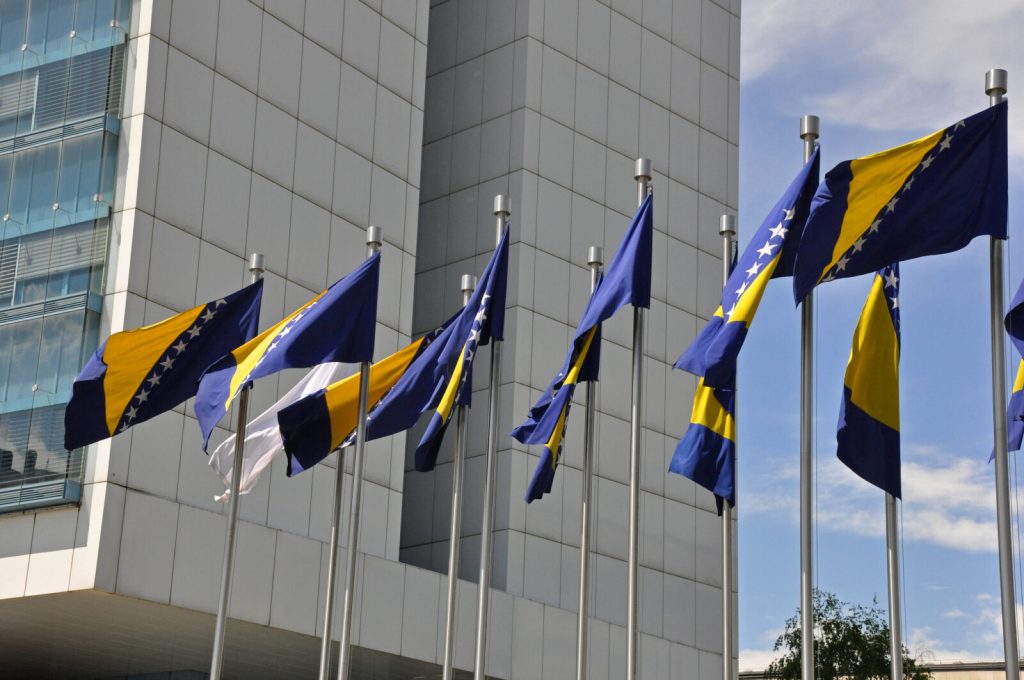
More on this story: Bosnia-Herzegovina`s past and future challenges
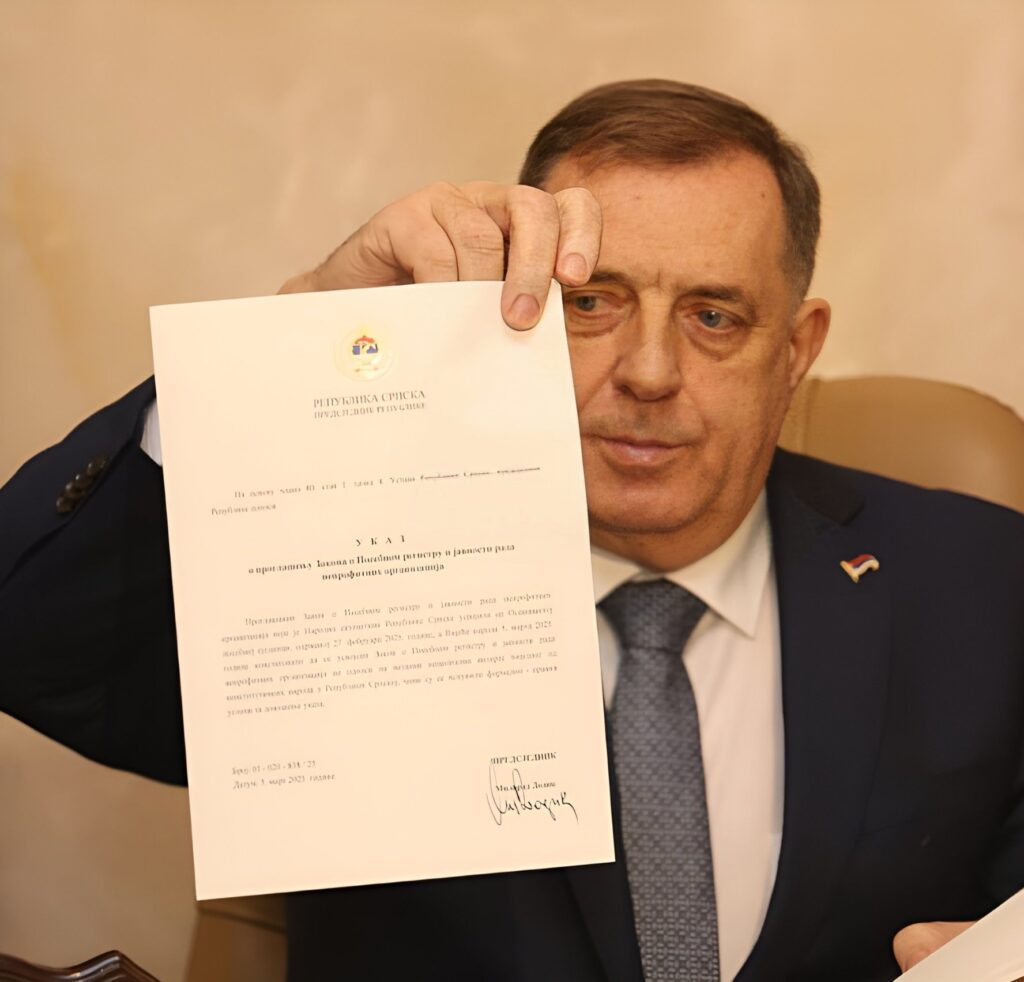
More on this story: Dodik may hide in Serbia; BiH on the verge of collapse
More on this story: he sanctioned Dodik, threatens the already fragile peace in BiH
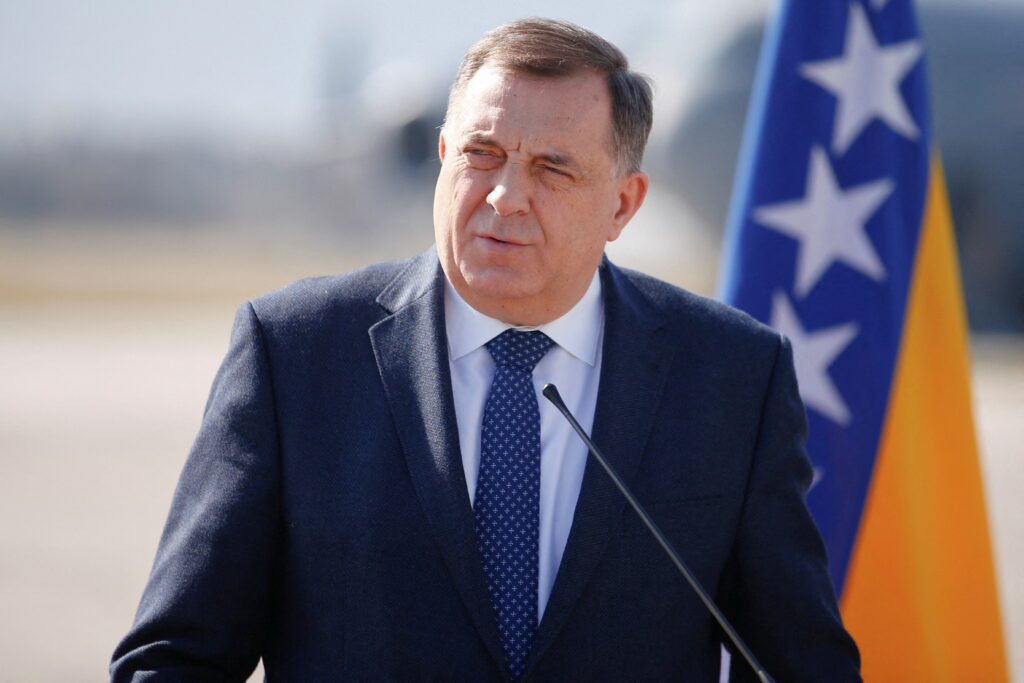
More on this story: The sanctioned Dodik, threatens the already fragile peace in BiH
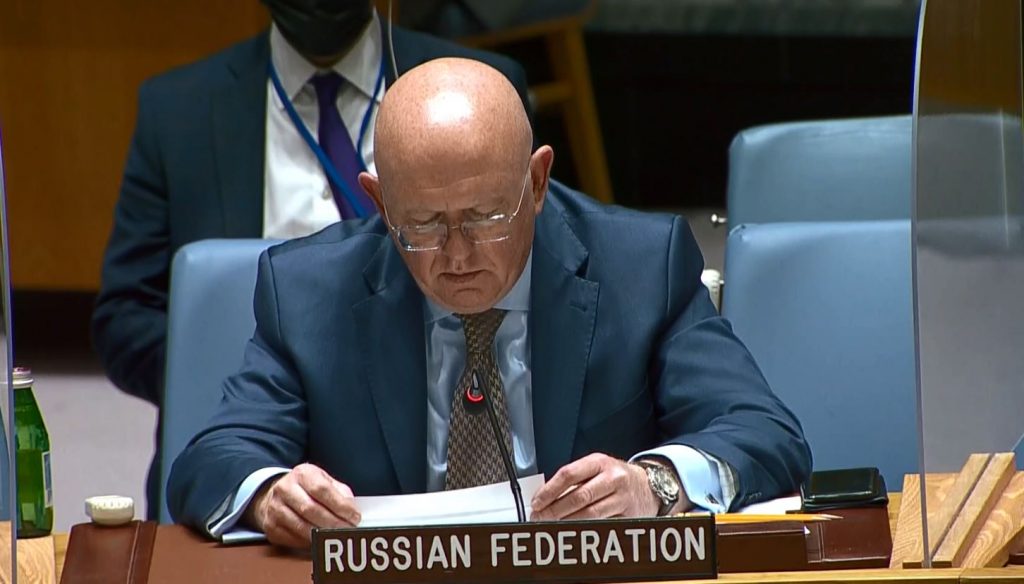
More on this story: Dayton Agreement break off to jeopardize stability in the Balkans


